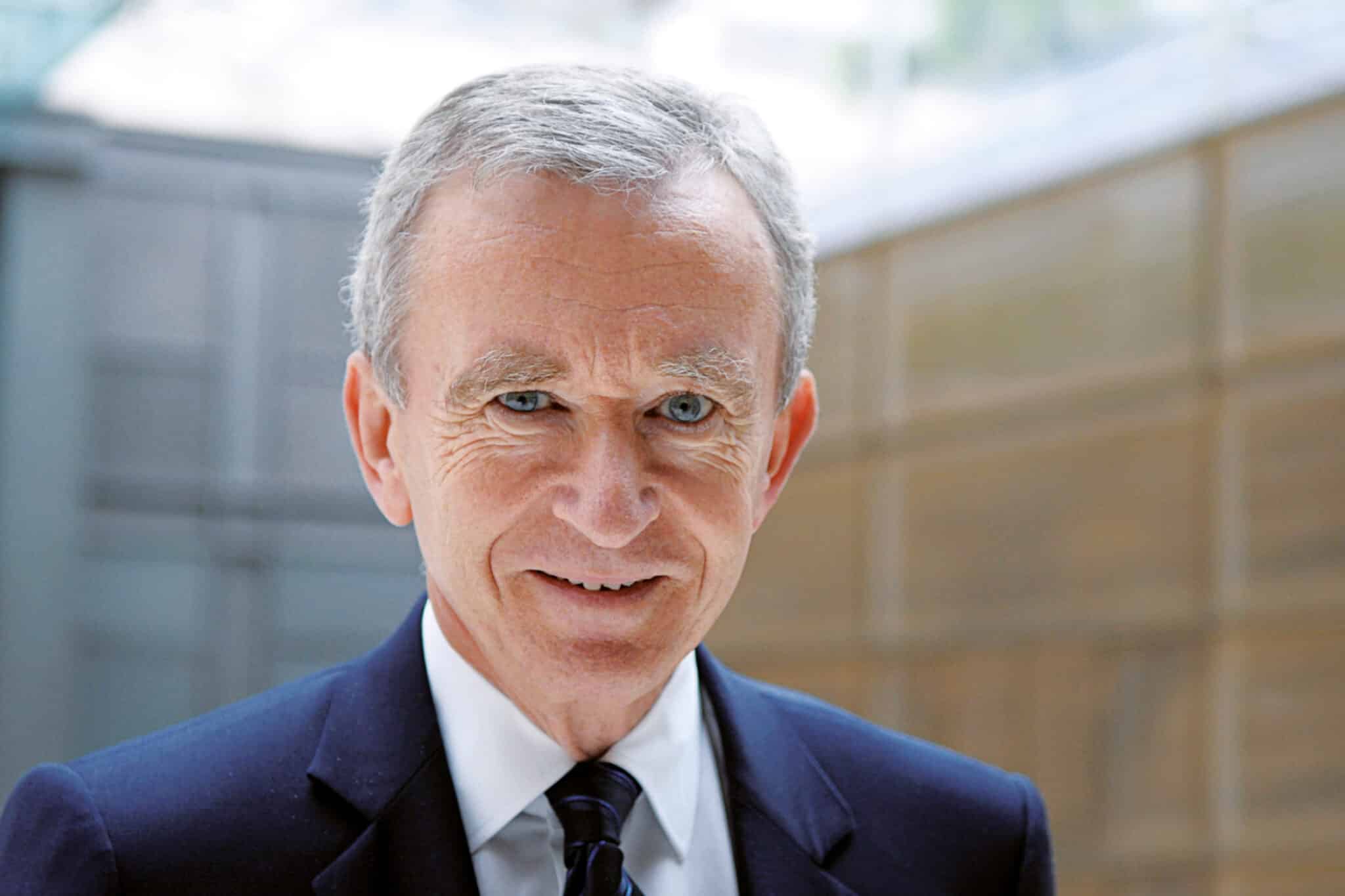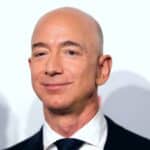Table of Contents
What is Bernard Arnault’s Net Worth?
Bernard Arnault is one of the wealthiest persons in the world, with a staggering net worth of $194.2 billion. This French business magnate derives the bulk of his immense fortune from his majority stake in LVMH, the world’s largest luxury goods conglomerate.
LVMH, which stands for Moët Hennessy Louis Vuitton, comprises over 70 prestigious brands across multiple sectors like fashion, wines and spirits, perfumes and cosmetics, watches and jewelry, and selective retailing. Some of its most renowned brands include Louis Vuitton, Dior, Celine, Fendi, Bulgari, Tiffany & Co., Sephora, and Dom Pérignon. Arnault owns around 48% of LVMH’s shares and serves as the company’s Chairman and CEO.
Arnault’s path to becoming one of the richest persons on the planet began in 1984 when he acquired the luxury brand Christian Dior. He strategically revived Dior and used it as a steppingstone to subsequently gain control of LVMH in 1989. Over the next three decades, Arnault demonstrated his business acumen by acquiring numerous other luxury brands and integrating them into LVMH’s portfolio, enabling the conglomerate’s remarkable growth and profitability.
While LVMH is the primary source of Arnault’s wealth, he also has investments in other companies through his family holding company, Groupe Arnault. Some of his notable investments include a stake in the French retailer Carrefour and the streaming platform Netflix. Arnault is also a prominent art collector and philanthropist, supporting causes related to the arts, education, and medical research.
Here’s the breakdown of Bernard Arnault’s net worth:
|
Name: |
Bernard Arnault |
|
Net Worth: |
$194.2 Billion |
|
Date of Birth: |
Mar 5, 1949 |
|
Profession: |
Businessperson, Business magnate |
If you’re curious about how we estimate a celebrity’s net worth, you can check out our methodology here.

Early Life
Bernard Arnault was born on March 5, 1949, in Roubaix, a city in northern France near the Belgian border. He was raised in a devoutly Catholic household by his mother, Marie-Josèphe Savinel, who had a fascination for the Dior fashion brand, and his father, Jean Léon Arnault, who owned a civil engineering company called Ferret-Savinel.
Arnault attended elite Catholic schools, including the Lycée Maxence Van Der Meersch in Roubaix and the Lycée Faidherbe in Lille. He excelled academically and developed an early interest in business and finance. In 1971, he graduated from the prestigious École Polytechnique, one of France’s top engineering schools.
Family Business
After graduating, Arnault joined his father’s construction firm, Ferret-Savinel, in 1971. Within three years, he convinced his father to shift the company’s focus from construction to real estate, a more profitable venture at the time. The construction division was sold, and the company was renamed Ferinel.
Under Arnault’s leadership, Ferinel became successful in the real estate business, developing specialty holiday accommodations. He was appointed director of the company in 1974, chief executive in 1977, and eventually succeeded his father as president in 1979.
In 1984, Arnault made a pivotal move that would lay the foundation for his future luxury empire. With the help of Antoine Bernheim, a senior partner at the investment firm Lazard Frères, Arnault acquired the struggling textile and retail conglomerate Boussac Saint-Frères, which owned the prestigious fashion house Christian Dior.
Arnault’s strategy was to revive the Christian Dior brand and use it as a stepping stone to enter the luxury goods market. He liquidated most of Boussac’s assets, laid off thousands of workers, and focused solely on Christian Dior and the department store Le Bon Marché. This ruthless approach earned him the nickname “The Terminator.”
By 1987, Arnault had turned Christian Dior profitable again, setting the stage for his next major move – the creation of LVMH (Louis Vuitton Moët Hennessy).
Luxury Brands
Bernard Arnault’s immense fortune is primarily derived from his majority stake in LVMH, the world’s largest luxury goods conglomerate. LVMH owns a portfolio of over 70 prestigious brands spanning various luxury sectors:
Fashion and Leather Goods
This is LVMH’s core business, accounting for a significant portion of its revenue and profits. Key brands include:
- Louis Vuitton – The crown jewel and biggest revenue generator for LVMH
- Christian Dior – One of the most iconic haute couture and leather goods brands
- Fendi – Italian luxury fashion house known for its fur and leather accessories
- Celine – French ready-to-wear and leather goods brand
- Loewe – Spanish luxury fashion house specializing in leather goods
Wines and Spirits
LVMH is a major player in the wines and spirits market with renowned brands such as:
- Moët & Chandon – One of the world’s largest champagne producers
- Dom Pérignon – Prestigious champagne brand
- Hennessy – A leading cognac brand
- Château d’Yquem – Renowned Sauternes wine estate
Perfumes and Cosmetics
This division includes brands like:
- Parfums Christian Dior – A leading name in luxury perfumes and cosmetics
- Guerlain – One of the oldest French perfume houses
- Fenty Beauty – The makeup line created with Rihanna
Watches and Jewelry
Key brands in this category include:
- TAG Heuer – A major Swiss watch manufacturer
- Hublot – Luxury Swiss watchmaker
- Bulgari – Italian jewelry and watch brand
Selective Retailing
LVMH operates several retail chains like:
- Sephora – A leading beauty retailer with over 2,000 stores globally
- DFS – A major travel retailer operating duty-free stores
Arnault’s controlling stake in this diverse portfolio of iconic luxury brands across multiple sectors is the primary source of his staggering $226 billion net worth.
LVMH
LVMH (Louis Vuitton Moët Hennessy) is the world’s leading luxury products group, comprising over 70 prestigious brands. Bernard Arnault has been the Chairman and CEO of LVMH since 1989 when he successfully merged two companies – fashion house Louis Vuitton with champagne and cognac maker Moët Hennessy.
Under Arnault’s leadership, LVMH has grown into a global luxury powerhouse through strategic acquisitions and brand development. Some key milestones include:
- 1988 – Merger of Louis Vuitton and Moët Hennessy to create LVMH
- 1993 – Acquisition of Berluti, a French shoemaker
- 1997 – Acquisition of Céline and Marc Jacobs fashion brands
- 1999 – Acquisition of Kenzo and Thomas Pink brands
- 2011 – Acquisition of Bulgari, the Italian jewelry brand
- 2017 – Full acquisition of Christian Dior for €6.5 billion
- 2021 – Acquisition of Tiffany & Co. for $15.8 billion
LVMH is headquartered in Paris and had revenues of €79 billion in 2022. It employs over 175,000 people globally across its various business groups.
The company’s success is driven by Arnault’s core strategy of developing a portfolio of prestigious brands, maintaining their exclusivity, and integrating them into the LVMH group. His leadership has transformed LVMH into the largest and most profitable luxury products company in the world.
Other Investments
In addition to his controlling stake in LVMH, Bernard Arnault has a diversified investment portfolio through his family holding company, Groupe Arnault. Some of his notable investments outside of the luxury goods sector include:
- Netflix – Arnault acquired a 0.5% stake in the streaming giant in 2021 through Groupe Arnault, making him one of Netflix’s largest shareholders.
- Carrefour – In 2007, Arnault bought a 10.69% stake in Carrefour, France’s largest supermarket retailer, though he later sold most of his shares.
- Blue Capital – Groupe Arnault has invested in this insurance-linked securities asset manager.
- Princess Yachts – In 2008, LVMH acquired this British yacht manufacturer, though it was later sold off.
- Lagardère – In 2020, Arnault’s holding company acquired a 27% stake in Lagardère Capital & Management, the holding company of the Lagardère group which has interests in media, travel retail, and sports marketing.
Arnault has also made investments in various technology and internet companies over the years, including Boo.com, Libertysurf, and Zebank in the late 1990s and early 2000s.
Art Collection
Bernard Arnault is an avid art collector with a particular focus on modern and contemporary works. While he is notoriously private about his collection, some details are known.
His earliest known acquisition was a series of paintings by Claude Monet depicting Charing Cross Bridge in London. The collection includes works by renowned artists like Pablo Picasso, Yves Klein, Andy Warhol, Damien Hirst, Jean-Michel Basquiat, and Gerhard Richter.
In 2014, Arnault opened the Fondation Louis Vuitton in Paris to showcase LVMH’s corporate art collection as well as pieces from his personal collection. The museum building was designed by architect Frank Gehry.
In 2019, Arnault donated a selection of major artworks to the Louvre museum in Paris, including pieces by Basquiat and Maurizio Cattelan.
Arnault has collaborated with artists like Takashi Murakami, Richard Prince, and Jeff Koons to create special products and packaging for LVMH brands like Louis Vuitton.
Personal Life
Arnault has been married twice – first to Anne Dewavrin (1973-1990) with whom he has two children, Delphine and Antoine. His second marriage in 1991 is to Hélène Mercier, a Canadian pianist, with whom he has three sons – Alexandre, Frédéric, and Jean.
All five of Arnault’s children work for LVMH and its brands in senior roles. There has been speculation about who will eventually succeed him as CEO.
Arnault plays tennis regularly, watches his weight, and is known for his intense work ethic. He previously owned a 70m yacht called Amadeus.
He is a prominent philanthropist who has supported causes related to arts, education, and medical research. After the Notre Dame fire in 2019, he pledged €200 million towards its reconstruction.
Arnault has received numerous honors including the Grand Cross of the Légion d’Honneur (France’s highest honor), honorary knighthoods, and the Woodrow Wilson Award for Corporate Citizenship.

Ashley Roberts is the founder of Real-Time Billionaires List. She founded this platform because she likes to know how much celebrities are actually making. She is always curious why these people can make much more money than the ordinary person.
With a Bachelor’s degree in finance, she is skilled at financial analysis and understands numbers related to wealth. Most of the articles on this site are edited by herself before publishing.



